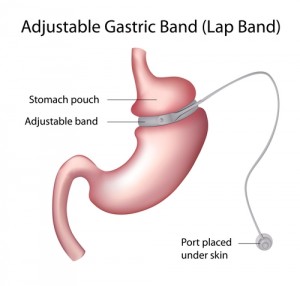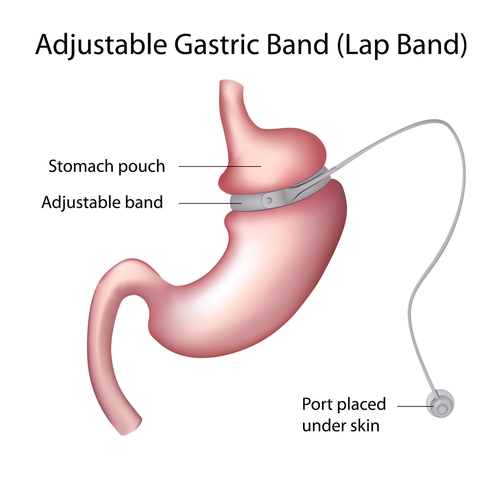 Type 2 diabetes is different from Type 1 in that it is commonly caused by an unhealthy lifestyle and poor nutrition. While volumes of research and healthcare providers strongly recommend positive lifestyle modifications in conjunction with pharmaceutical management for optimum results, many patients find it difficult to initiate and maintain such modifications to their daily routine, which is why some undergo procedures that can make weight loss and control easier.
Type 2 diabetes is different from Type 1 in that it is commonly caused by an unhealthy lifestyle and poor nutrition. While volumes of research and healthcare providers strongly recommend positive lifestyle modifications in conjunction with pharmaceutical management for optimum results, many patients find it difficult to initiate and maintain such modifications to their daily routine, which is why some undergo procedures that can make weight loss and control easier.
A patient may opt to undergo gastric banding — the most common restrictive procedure for weight loss — which involves placing an adjustable silicone band around the upper part of the stomach. It results in a capacity of roughly 1 ounce, and can lead to about 40% loss of excess weight. It is the least invasive option, and is reversible. Another option would be gastric bypass surgery, which reduces the stomach’s size then reroutes food intake to minimize absorption.
A group of surgeons from the University of Texas Southwestern Medical Center reviewed 30 studies comparing the two procedures, and found that gastric bypass is more effective for long-term weight loss, management of type 2 diabetes and hypertension, and controlling cholesterol. Patients who underwent gastric bypass had a median weight loss of 66%. These findings are currently available in the Journal of the American Medical Association.
Dr. Nancy Puzziferri, an Assistant Professor of Surgery and member of the bariatric surgery team at the institution, said that while gastric bypass surgery has been known to be more effective than gastric banding up to a year after the procedure, this study produced strong evidence that it is still more effective even 5 years later.
Among Type 2 diabetes cases, the researchers noted a significant difference in patient outcome. About 67% of those who underwent gastric bypass experienced disease remission. This was noted in only less than 33% of those who opted for gastric banding. Gastric bypass was also noted to be more effective for long-term blood pressure and cholesterol control. The results of this review of bariatric weight loss procedures underscores the need to promote long-term options to patients.
Preventing diabetes is not all about limiting food intake, however, as proper nutrition is more about eating right, not less. A recent study showed that significant intake of high-fat dairy products is associated with a lower risk of developing type 2 diabetes when compared to a diet with minimal dairy intake.


